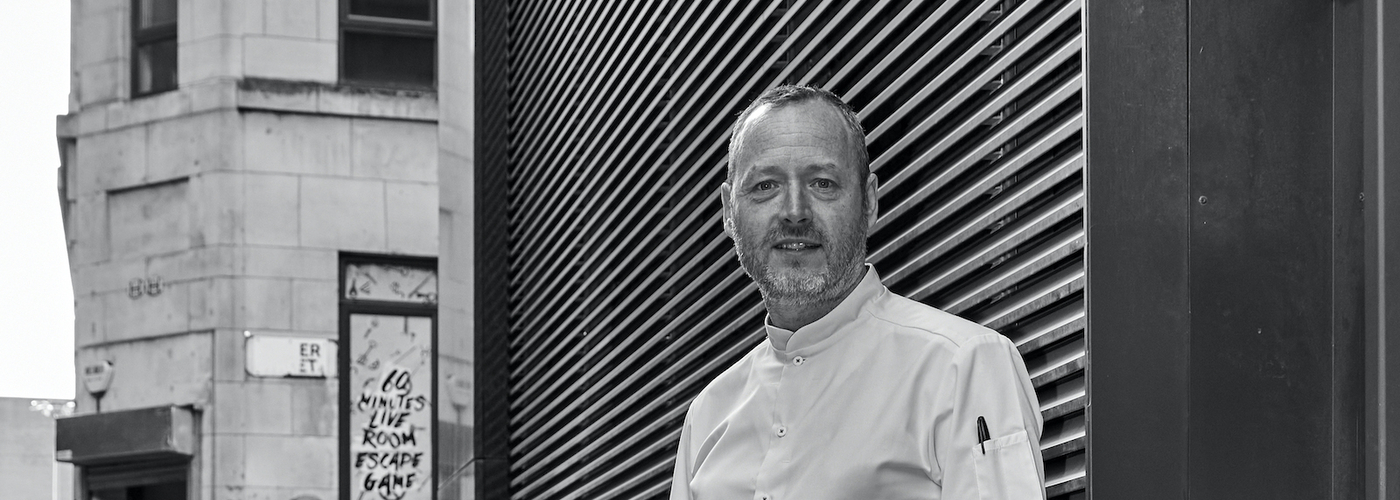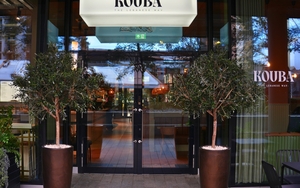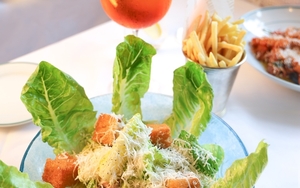£3m worth of ambition, a celebrated chef and the world’s finest ingredients
MUSU Chef Patron Michael Shaw is a pull-quote dream.
In an hour-long conversation a few days after the press launch of his Japanese-inspired restaurant, MUSU, he holds little back. The headline for this article could’ve been anything, from his thoughts on former boss Gordon Ramsay to his confidence in the quality of his desserts. He’s honest, is Mike. Brutally so at times.
Whilst it may have opened at the tale-end of last year, MUSU is one of Manchester’s biggest restaurant openings of 2023. Massive budgets, years in the making, a celebrated chef with a star-studded pedigree, indulgent menus and an already growing celebrity clientele.
MUSU is not only a statement in itself but a statement for where Manchester is going as a city. Mike is at the forefront, holding nothing back.
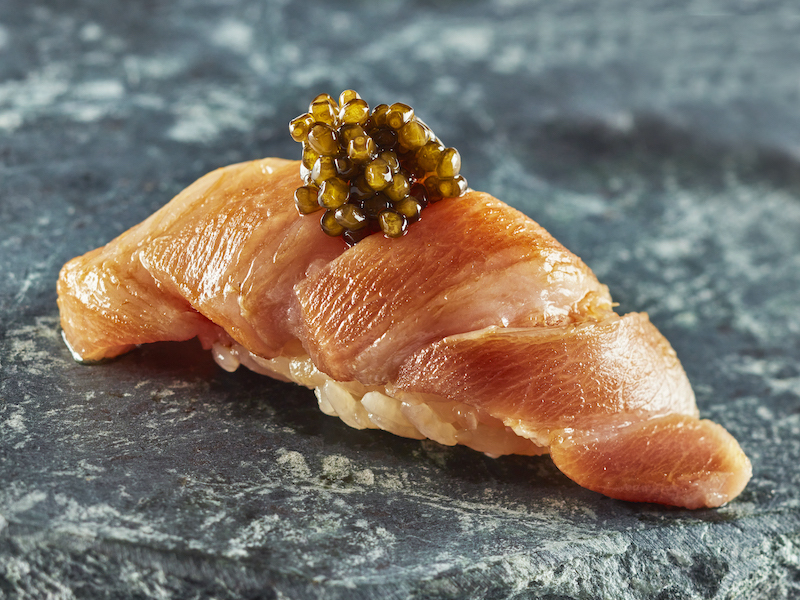
Raymond Blanc, Gordon Ramsay, Richard Neat then home
“Ultimately, in the North West, people want feeding. They want a plate full of food.” Mike says, as he recalls his early interest in cooking. The food he’s describing is miles away from what he’s serving at MUSU.
He describes in detail a pommes anna at Paul Heathcote’s Longridge restaurant in all of its buttery, potato glory. Served with a rack of lamb and baby vegetables. Albeit with one caveat. “I just thought, that looks a lot on a plate.”
Born and raised in Greenfield, Mike’s grandmother had a big influence on him growing up. When he was sixteen she paid for him to go to pastry school in Switzerland, and when he finished, she wrote to Raymond Blanc asking if there was any space for him at Le Manoir aux Quat’ Saisons in Oxfordshire.
“Nouvelle Cuisine didn’t sit well in the north of England. I decided from a young age, there wasn’t much around here for me. Listen, I don’t want to be disrespectful to the place I come from, but it’s a fact - where would I have eaten in Manchester back then? There was nowhere.”

“I was reading books on top chefs and what not. To be classed as a serious chef, you had go to London and you had to go to France. In my view, it’s always best to do that when you’re young. Get it done. Get all the pain out of the way.” Mike says. So off to Le Manoir he went.
When Mike talks about working at Le Manoir under Raymond Blanc, two themes emerge. The first is produce.
“It’s very important to know when to buy produce and when to use produce. So not only was I learning to cook, I was learning how to buy things, what seasons were. Even to this day, the gardens at Le Manoir are fantastic. The gardeners come in with a wheelbarrow full of stuff, it’s garden to chef to plate - the right way.”
The second is what you might call the buzz.
“The Manoir is a palatial place, full of rockstars and superstars and that gives you a great feeling. You’re stood there during service and you’ve got Trevor Macdonald, Rod Stewart, it just makes you feel good. It gives you a bit of an ego. I didn’t mind busting my arse, I didn’t mind at midnight, last job, getting the Brasso out to polish all the handles of the stoves because of who I’d seen and what I’d seen on the plate.”
“The tension. The animosity. I love the atmosphere of the kitchen. I love the intensity. I love it when people are shit scared. I get off on it. It’s dying now, you can’t do it now.”
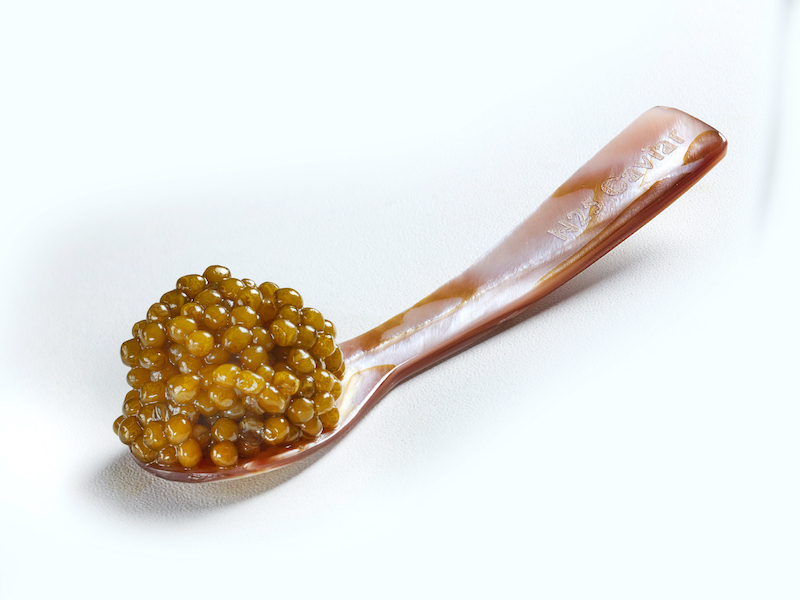
Mike’s subsequent career has been a roadmap of famous chefs and Michelin approved plates. From the two star Le Manoir, Mike followed chef Aaron Patterson to one star Hambleton Hall in Rutland. After seven years it was on to Gordon Ramsay’s Aubergine in London.
“I rang up Aubergine and I’d asked to speak to Gordon and he wasn’t available so I rang four more times within the hour. Eventually he was on the phone and he said what’s the problem? So I told him and he said right, meet me on Fulham Road for breakfast. He obviously knew the Manoir, knew the Hambleton. He said I’m looking for pastry chefs and offered me the job on the spot.”
“I had a good time there but it was very intense. The atmosphere was fucking awful. Everyone’s dog eat dog. There wasn’t a lot of kitchen equipment, so it was first up, best dressed type of thing. If you need a pan get in early. Everyone use to start at fucking 6am, I refused. I used to go in for 7.”
Having “boxed off” the pastry at Aubergine, love took Mike to Cannes. His partner at the time was working out there so Mike went to work for Richard Neat - who had just got two stars at Pied à Terre - at his eponymous restaurant, Neat. Like Ramsay, Neat had been a sous chef under Marco Pierre White and offered Mike a deal.
Mike would come and box off the pastry side of things and in exchange Richard Neat, talent of a generation, would teach Mike how to cook and make him sous chef.
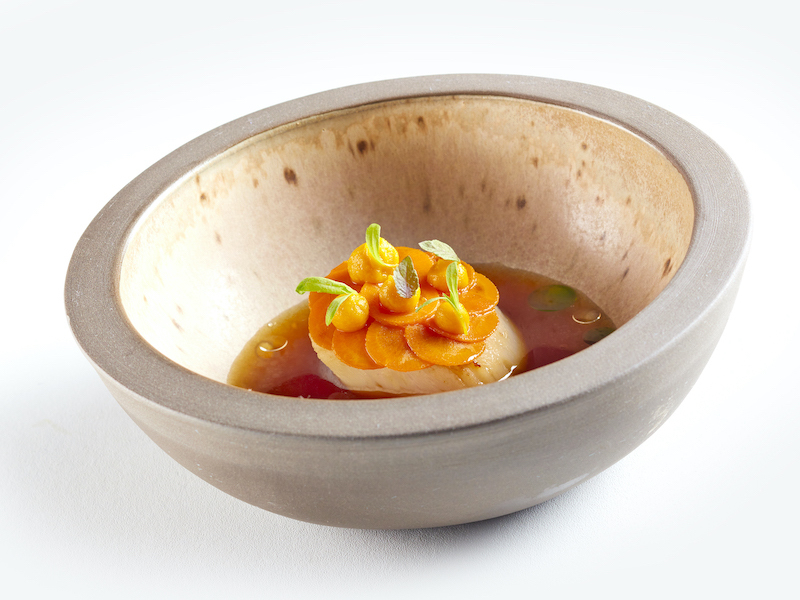
The plan paid off. It was a one star in no time. Joël Robuchon (‘Chef of the Century’ according to the guide Gault Millau) opened the place, Mike cooking alongside him on opening night. A few successful years followed before money troubles closed the place down. Mike and his partner broke up and it was off to Quo Vadis in London to do then owner Marco Pierre White a favour and sort out the pastry. The Gilpin followed with a role as Head Chef and a Michelin star awarded on Mike’s watch.
Being out in the sticks and “away from the circus” at The Gilpin, as Mike puts it, did him good. A role at The French Laundry came up (“I’m addicted to these sorts of places”) but instead, with “Manchester livening up” and the pull of family, he took up a role as Head Chef and business partner at the White Hart in Oldham. He’d nailed pastry. He’d worked under some of the world’s best chefs. The White Hart would teach him how to make a business plan.
After a stint that Mike looks back fondly on, a change of cooking direction led to disagreements. Vinnie Braine and Marius Kamara, co-owners of MUSU ran an idea for a restaurant by Mike and here we are.
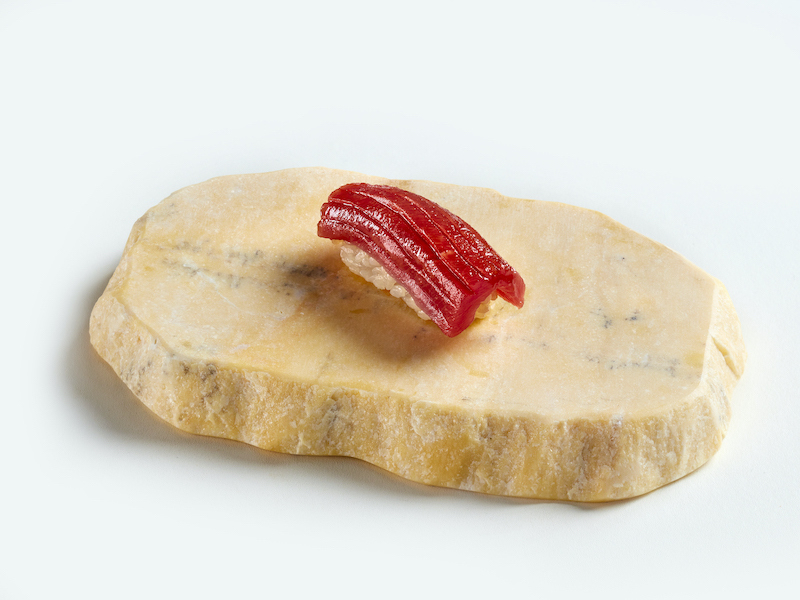
The best tuna, the best Wagyu, but let’s see what you can do with a carrot, shall we?
“There’s been a lot of study involved, a lot of research gone into it. A lot of travel gone into it. It’s very important that we’re not a classically Japanese restaurant.” Mike says.
MUSU is the next chapter of Mike Shaw’s career. A Japanese-inspired contemporary restaurant and bar on Bridge Street. Inside there’s an intimate six cover ‘Omakase’ sushi counter manned by Brazilian sushi chef Andre Aguiar with other dining options split between an a la carte ‘Sentaku’ or seven or eleven course ‘Kaiseki’ tasting menu. A Subayai lunch menu is also available.
It’s the aforementioned Kaiseki menu that local and national press have been treated to with a host of small preview dinners in the run-up to the launch. The first was held at PR Jori White’s London home whilst local press were wined and dined at co-founder Vincent Braine’s home in Lydgate.
Don’t let that London detail pass you by. Whilst it’s not a guaranteed moniker of success, it’s notable that in the run-up to its launch, MUSU has been put before the London set. Critics, notable food press. This gives you an idea of its ambition as a destination.

The long thin space MUSU occupies on Bridge Street is sleek. It’s not industrial minimalism and it’s not the Scandi interiors of Kinfolk magazine. It’s Bill Murray sat in the bar in Lost In Translation (2003) and the screens from Bladerunner (1982) beaming glowing Japanese cityscape and countryside panoramas. The open kitchen and sushi counter take up one side of the room, a bar further down on the right. At the end, separating screens can create a private dining space.
A local hospitality pundit on launch night suggests it’s “very Mayfair”, which is code speak for: money. Copious amounts of money has been and will be spent here.
“You can have all this, all the staff,” Mike gestures to the room around him, “but the most important thing is the ingredients. If you’ve not got that, you’re fucked.”
When it comes to the ingredients at MUSU, the fish sets the standard for everything else.
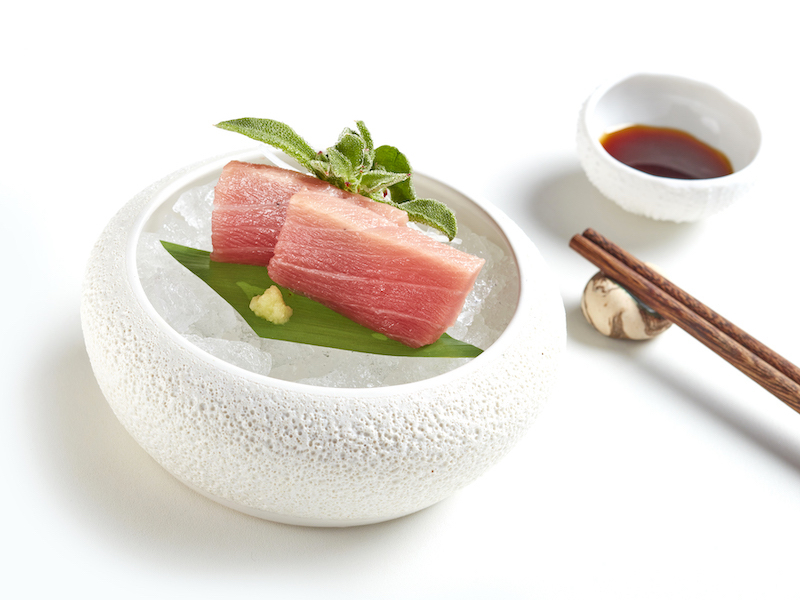
The finest tuna and other seafood is air-freighted in by Reach and New World Foods and superfrozen on site to -60. “You put a piece of tuna loin into a standard freezer at minus 18, minus 20 and it’s gone. Oxidised. All of our tuna, it comes in, we age it, then we put it in the superfreezer and in two weeks’ time it comes out same as it went in.” Mike says.
“Ultimately, I’m paying a grand out for bluefin tuna and I’m not losing anything. I’m usually anti-freezer. I don’t like a freezer. In my kitchens you won’t see a freezer because chefs get lazy. They fill them with all sorts of shit. If it’s not there, they won’t fill it. Get your purchasing right, get your sales right, we won’t have waste.”
A5 Wagyu follows suit. Airfreighted in, Mike knows exactly which region of Japan it’s from down to the farm.
“It’s all A5, best marbling there is. Andy Hayler [Food critic] will say Mike, I don’t think there’s much difference between four and five. Maybe not, but if customers are paying big money here, they’re getting the best. I can’t charge them high prices and give them mediocre. I’m comfortable, anyone that comes in here saying £16 for a nigiri, bluefin with beluga caviar? I’m giving them the best. I’ll show them the invoices.” He says.
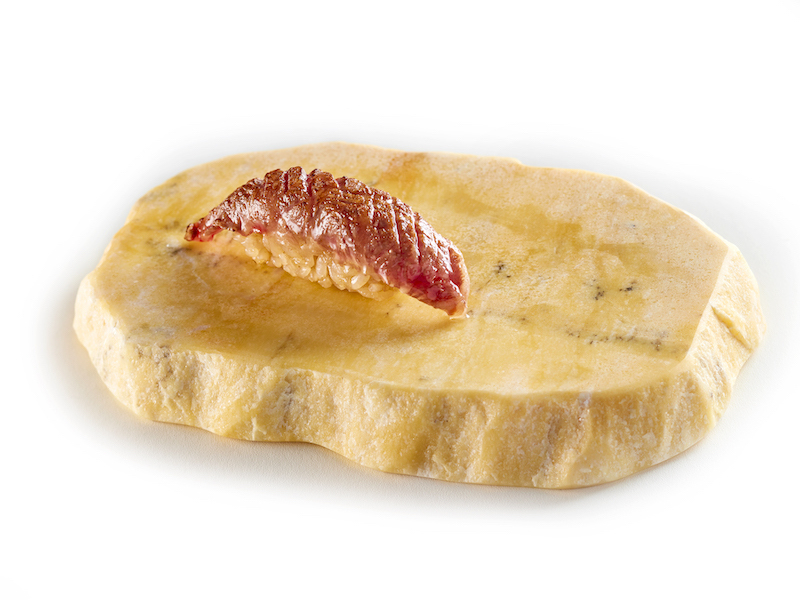
“What we’re doing is different. There’s a fine line but we’ll get there. The food is at a good starting point. Richard Neat always told me, there’s a lobster, there’s foie gras, there’s a tub of caviar. Luxury ingredients you don’t have to do too much to. You’re offering something that a lot of people like.”
“But the first thing he ever said to me was: there you go, there’s a fucking carrot. Let’s see how good you are. Fuck all the other shit off, there’s a simple carrot, let’s see what you can do with it. And it’s true. It’s a fine balance. I smile to myself, I see produce come in and I’m content that people coming here are getting good stuff. I respect ingredients and I respect my customers.”
“I’m driven because the moment I walked into the Manoir kitchen, I was driven by ingredients. I was driven by quality. Ray White at the Manoir has gone bust three or four times. He’s got the best china, the best ingredients. He pays top dollar for it. He’s expensive as fuck. But he still can’t make money and that’s what these restaurants are about.” He says.
“So, how do you make money? That’s what I loved about the concept the guys brought to me.”
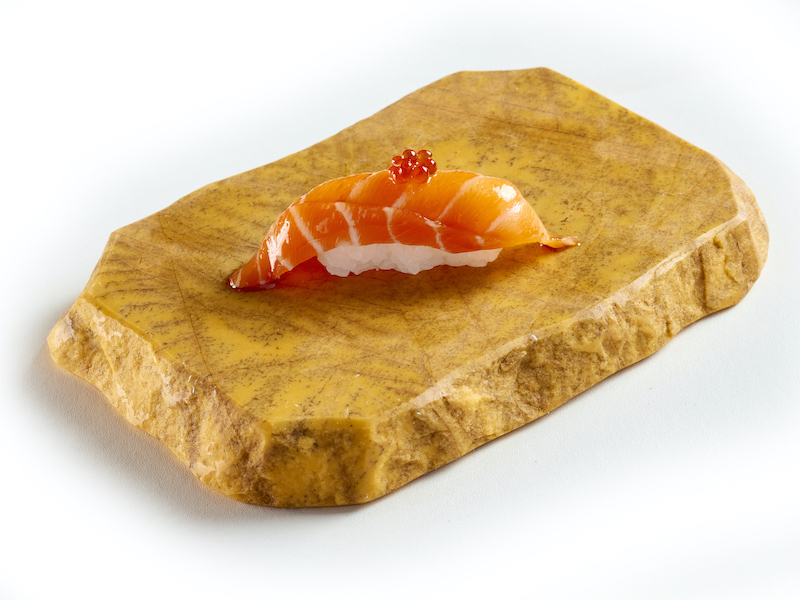
Nijikai, the changing face of Michelin and body popping
MUSU is not just a restaurant. It’s also a bar. Inspired by Japanese Izakaya (read: pub and bar) culture, from Thursday to Saturday, MUSU opens late, with DJs, cocktails and a limited snack menu until 1am.
“You can go to restaurants in the countryside, have a fantastic dinner and at half ten, everyone’s fucked off home. The concept of the nijikai, in Japan, is where they have a half party and then they go on to a bigger party. It’s food, it’s drink, it’s celebration.” Mike says.
You don’t need to be big on the scene to observe that the culture of fine dining is changing and restaurants are loosening up. MUSU is looking to capitalise on this change.
“I go to Sketch in London. Great famous French chef, crazy [interior] designer. Married in. You walk in and you go, what a crazy place this is. That’s a two-star. Ynyshir in mid-Wales. Flavour of the month. Great food, they’re fucking body-popping on the floor. Disco bulbs.” Mike says.
“Michelin aren’t bothered, are they? The starchy, go in, white table cloths, sat there, can’t fart - those days are gone. It started with the gastro pub. We now want people to go to a pub and have a nice dinner without having to put a jacket on. Michelin realised that’s the way it’s going. So what you’ve got to do is absorb it. Go with it because otherwise, you’ll end up on your own.”
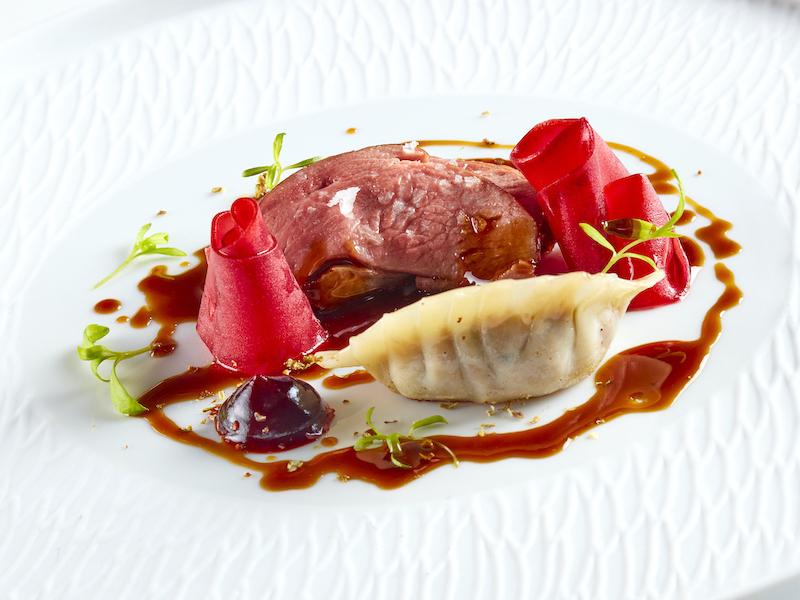
“Never cook for Michelin, never cook for a guide, cook for your customers. If Michelin walk in and you’re busy. If Michelin try and book and you’re full, all they want to see is a full restaurant because it shows you’re a strong business. That’s why all of a sudden they started asking, what's going on at Ynyshir Hall?”
“You can’t get in. If you can’t get in it means you’re doing something right. Now it might not be for the man next door, we have different tastes probably, but there’s bums on seats. They’re doing something the public want. For that, you’ll be rewarded. Guides, one star, two star, as long as the food matches up to what’s going on, the customers are enjoying it, you’re using quality gear.”
“There’s a lot of chefs out there and it’s all ego-based. You can’t do that now. For me, the celebration at night, as long as it’s done right, let’s feed people with what they want. If they want a glass of champagne or a cocktail, and some music on and they’re having a fucking great time, what it’ll do is it’ll make this business successful.”
“My food costs are high and my profits are low. That’s why I was interested in it. But walking through the door from the music at night, to all the rest of it, has to be consistent with what we’re trying to achieve.”
If the tuna is getting airfreighted in from Japan, you can bet there’s some indulgence being mixed behind that bar.
A changing city, the chippy on Cross Street and Jason Derulo
“I think Manchester’s great. Mana I’ve been two or three times and it’s got better every time. Where The Light Gets In, I’ve not been but I’ve heard great things. Listen, I’d love Manchester to have 10 Michelin star restaurants. Competition is healthy. You’ll never hear me badmouth any other restaurant or any other chef.” Mike says.
“We’ve had hoteliers here and GMs and stuff like that, if someone stays there for three nights, are you really expecting them to eat three days with you? Send them somewhere else that’s really good. That’s what we should be doing for each other.”
Speak to most chefs in the city and they’ll echo this sentiment. They want a strong culinary ecosystem that’s able to support not just the people living here, but also visitors doing a long weekend and spending a decent whack between three restaurants. Even the notable local chef present on launch night will tell you that although his own ethos and MUSU’s are different, world-renowned cities have these sorts of options.
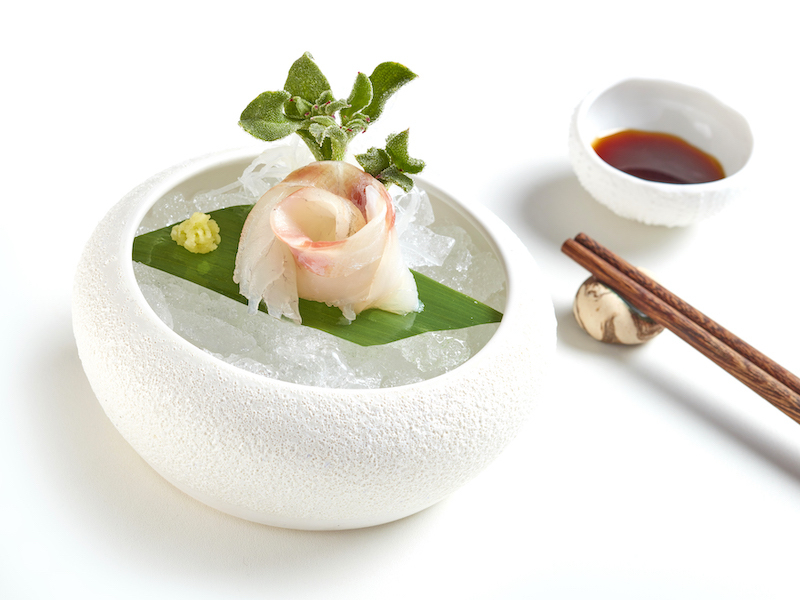
Whether it’s your cup of tea or not MUSU is a sign of where Manchester is as a city and where it’s going. It’s a vote of confidence. The sort of wall you can now throw £3m at because there’s a chance that money will stick. Private sushi chefs are already going from skyscraper to skyscraper in the city charging £115 per head plus travel. There’s money to be made and there’s money to be spent.
Footballers have already flocked. Jason Derulo has been in. Sara Arfaoui, the wife of Manchester City player İlkay Gündoğan, recently wrapped up in tabloid nonsense denigrating the Manchester food scene, has proclaimed it her new favourite restaurant. The critics will be next in.
“We’ve had great feedback this week.” Mike says, reflecting on opening week. “We’re working hard. You know I think sometimes they get a bit giddy, saying we’re fucking great. I don’t like any of that. There’s no ego in me. You’ll find me in Pizza Express, in the chippy.”
Mike recommends Wright’s on Cross Street by the way. Good fish and chips for less than a tenner. He says you can find him in there most days. On his day off he’ll drive to Robin Hood’s Bay for quality fish and chips. He also likes a cup of tea.
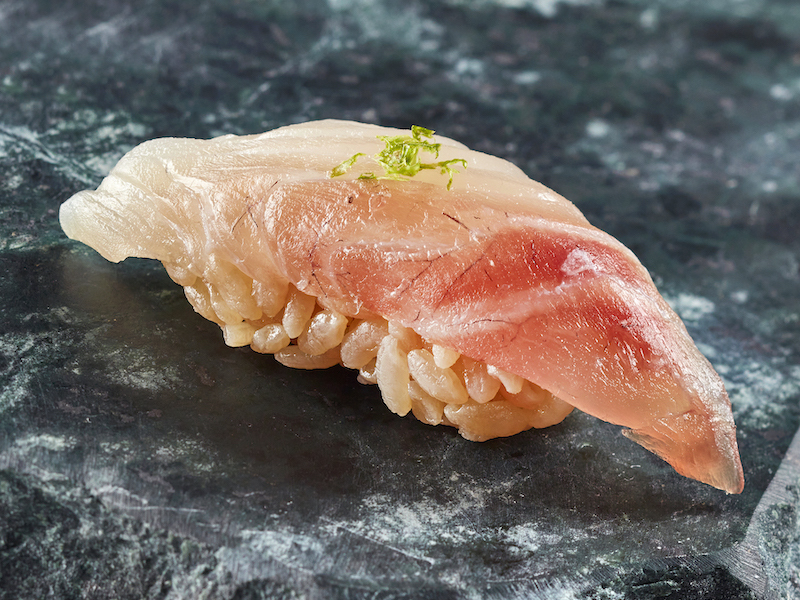
The portion paradox, gastro people and the final verdict
I was lucky enough to try Mike’s food on launch night. Seven courses of delicately arranged food, not a grain of salt or pepper out of place. Sommeliers presenting expensive wines and well-drilled staff gliding between tables, checking everything was up to standard. An eccentric London PR charming diners, one by one.
There was a dish that stood out on the launch night. A dessert dish on the Kaiseki tasting menu called sweet sticky rice. Pear, plum pickled ginger and yuzu artfully arranged around a carefully moulded mound of sticky rice in a heavy bowl. The photo I took on the night did it no justice.
The dessert reminded me of my parents. Not because my parents enjoy this style of food, they don’t. They would accuse it of being food for the pretentious. They’re Wetherspoons people. They eat to be filled. The most food for the least amount of money. Said dish is the antithesis of their existence. But that said, if one day, they were lucky enough to try that dish, I think even they would go quiet for a few seconds. I think those flavours, arranged like that, three spoons’ worth maximum, would make them stop and think.
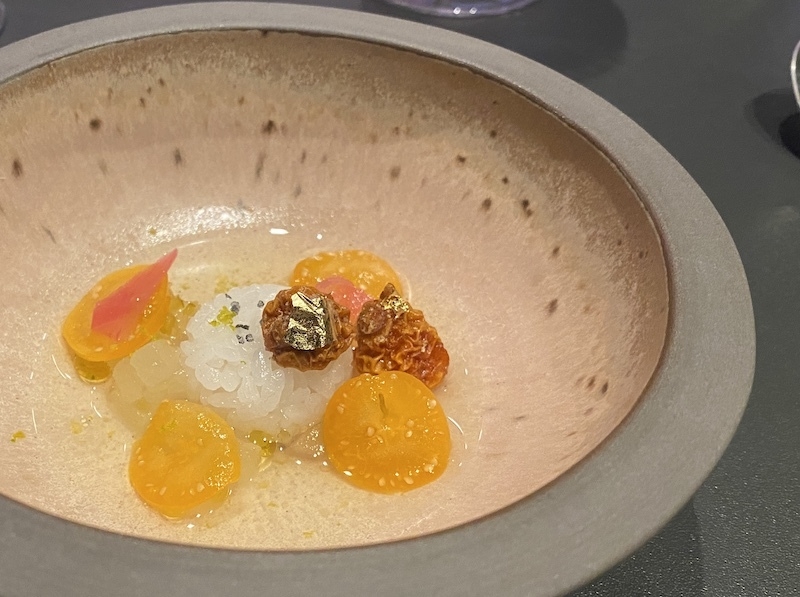
“Andy Hayler, been to every three star Michelin restaurant, he says that’s a three star dessert. It doesn’t look much. I used to do little rice balls with it but it wasn’t right visually. Then I started putting the sticky rice in a mould and it looks perfect now. That is it finished. There’s nothing I can do to make it prettier. You can’t go any bigger with that.” Mike says.
“My parents, my sisters and brothers, they’re not gastro people. They go to Kingfisher in Oldham, love a chippy.”
Mike says that his food isn’t for everybody but it’s his job to educate people. That’s what chefs do. He’ll look you in the eye and tell you that he isn’t going to get it right every time, the restaurant is new. He knows there’s plenty of people out there gunning for him, wanting to put the place down. It’s going to happen, he says.
“You, your parents, Joe Bloggs might come in and all I can say is I tried my best that lunch, that night. That’s it. If I’ve not done it quite right, so be it, come and give me another go.” He says.
“If I don’t get it right then, I should be sacked.”
MUSU, 64 Bridge St, Manchester M3 3BN
Follow Davey on Twitter and Instagram: @dbretteats





